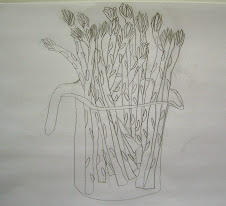
How delightful this reply of yours. You haven't persuaded me! But you make some wonderful points. Let me see if I can be persuasive. I agree that we depend on society -- so, okay, in that sense politics pervades everything. But that isn't a helpful definition of politics -- not if we want to understand distinctions between political parties, or what motivates voters, or even broader questions like different kinds of political order (democracy, oligarchy, monarchy, tyranny, etc.)
Art benefits similarly by some narrowing of definitions. True that formal questions of how things are ordered visually, line, form, color, etc. are part of every kind of design from old master paintings to business cards. But there is a huge difference between your work as a graphic designer, trying to put visual information into the format dictated by your boss or your customer and you making a drawing for no other purpose than to satisfy your curiosity.
"Fine" artists have customers too, of course. Michelangelo had to answer to the Pope. But certainly there is no way that Michelangelo's customer could have dictated anything of the essense of what Michelangelo was doing. On a very high order of skill like that, he's thinking in formal ways that kind of defy rules. The Pope might have said "add more angels" or something, but none of a tampering with subject matter really touches what is happening formally -- and the formal structure underlying the subject matter conveys more of its meaning than people typically realize.
Well, we're not Michelangelos so maybe that doesn't apply to us .... But no. If you just begin looking at something and draw it. After a while you lose yourself in it. Your attention is captured in various ways by what you see and want. You may not know yourself why various features of the world capture your notice and others don't. This is what "art" is really about. Politics has no relevance to it.
The "political" realm of people interacting with each other is separate from this. Granted your being an artist (as I agreed) has political elements, but not the art.Art comes from within the mind, from aspects of the self, from your visual cortex, from degress of skill (or lack of skill) with which you are born -- over which you have practically zero control. Think of Paul Cezanne, French 19th c Impressionist painter. Cezanne's hero was Peter Paul Rubens. Cezanne would spend hours in the Louvre making drawings after Rubens. Rubens is one of the greatest draughtsman the West has ever produced. Cezanne -- not the greatest draughtsman. But Cezanne's not being able to draw like Rubens did not prevent Cezanne from becoming a great artist also. One of art's wonderful mysteries, this sort of thing.
People have private lives. Artists are perhaps more aware of this than others in our politically saturated world. What transpires when you hold a pencil and draw whatever common object catches your notice has nothing to do with society. The pencil, various conventional ideas about art, perhaps the object might all have various tenuous connections with the political -- but not the drawing. The drawing is more like a dialog between you some "reality" "out there."It's an amazing thing.
Shouldn't say this to someone who is tired from working all day in a graphic design studio, but I'll say it anyway. Draw. Pick something of no significance whatever except that its visually appealing for you. Then draw.Nothing could be further from politics. There are no rules for the order in which your senses notice the features of visual reality.

No comments:
Post a Comment